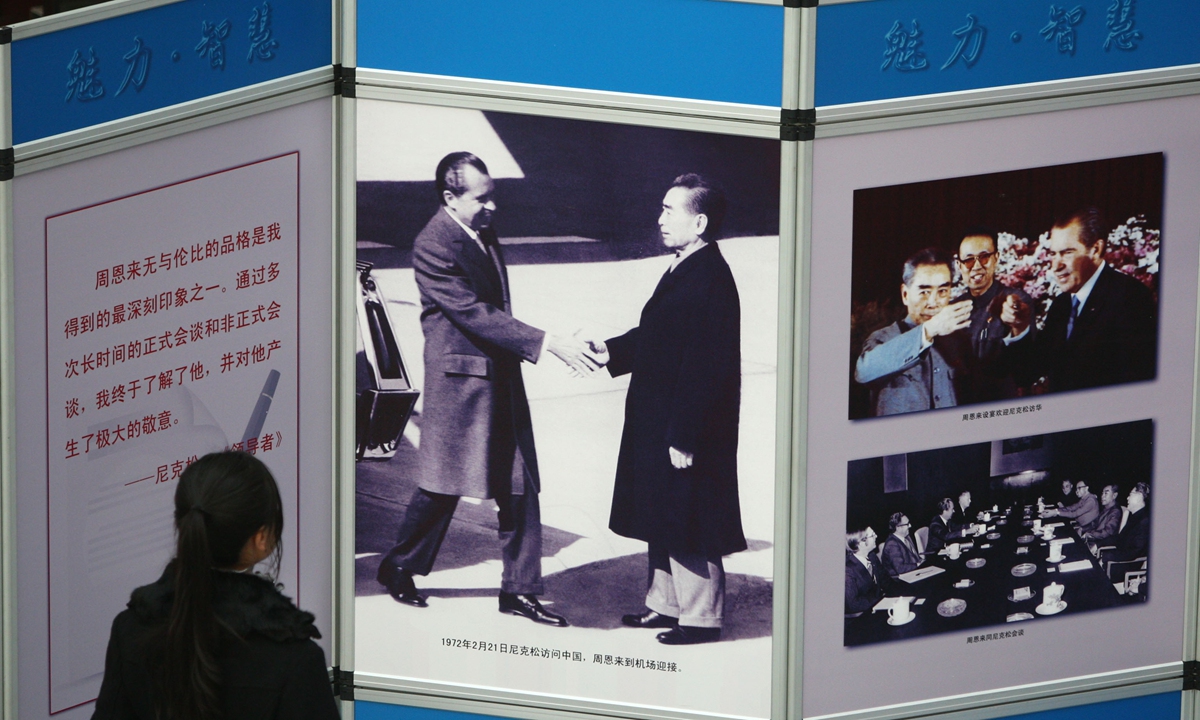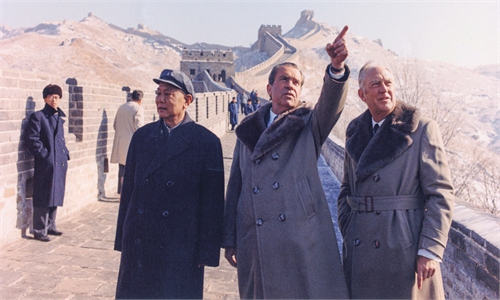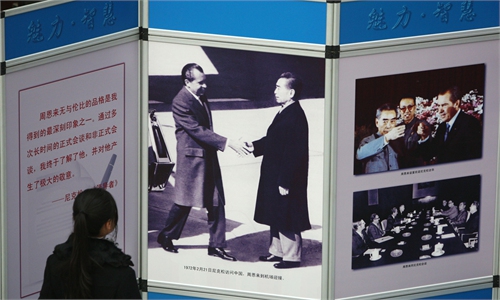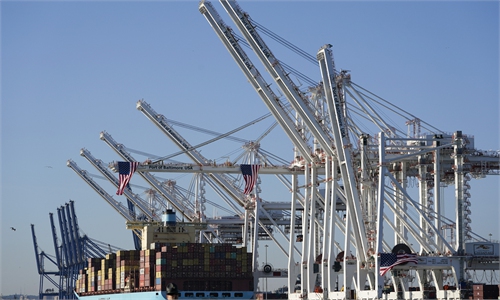Can US’ balancing strategy last after Ukraine crisis?

An exhibition on US President Richard Nixon's visit to China Photo: cnsphoto
On February 21, 1972, US President Richard Nixon came to Beijing to begin a "world-changing" visit. He became the first sitting US president to visit China.
On February 28, China and the US issued the Shanghai Joint Communiqué, which laid the foundation for the subsequent development of US-China relations.
Twenty years ago, in February 2002, I interviewed Dr Kissinger in New York. Over the past two days, I have gone over my notes from that interview and have been filled with emotion.
The China-US relationship seems to have gone through a strange circle, from breaking the ice in 1972, to steadily rising to a warm point in 2002, and then beginning to freeze again.
The world is also in the midst of dramatic change. From Chairman Mao Zedong's handshake with President Nixon, to former President Trump's "decoupling" with, to China-Russia back-to-back partnership today, and the outbreak of the Ukraine crisis, great powers are beginning to reorganize.
I clearly remember Dr Kissinger telling me at the time that the breakthrough in the Shanghai Communiqué was largely due to a mutual recognition that establishing direct contacts was possible and in the interest of both sides.
Kissinger said President Nixon made the goal of establishing diplomatic relations with China an integral part of his international strategy as soon as he took office. The Chinese side had the same consideration.
According to Kissinger, there were also concerns on the Chinese side at the time about the threat from the Soviet Union. Those were the two bases on which the Shanghai Communiqué made its breakthrough. The basic spirit of the communiqué, in his view, was to establish a direct cooperative relationship between the US and China.
The two foundations Dr Kissinger spoke of reflect his idea of a balanced strategy. The central idea of his book World Order was that a balance of power based on the Peace of Westphalia was the key to avoiding war and building peace.
This idea of strategic balance still influences Washington's global strategy today, and the adjustment of US policy toward China clearly comes from this idea.
In recent years, some in Washington have insisted that the US-China relationship is headed for a breakdown because China has adopted a more aggressive strategy of foreign expansion, undermining the order that the US has worked on for years to establish in the Asia-Pacific region and is upsetting the global balance of power.
Some US scholars also cited Kissinger's advice before Nixon's visit to China 50 years ago.
According to declassified documents, Kissinger told Nixon at the time that the US should "play the balance of power game without any emotion."
Kissinger also predicted that in 20 years, China would be "even more powerful" and reminded the US president at that time to consider how to rely on Russia to keep China down.
Such a balance of power game is to create a US-led structure to balance the relationship between global powers. Essentially it is not about trying to cooperate with the other side, but to ensure that the US can suppress and dismantle the other side in order to achieve US hegemony. Such a balancing structure will eventually force many small and medium-sized countries to choose sides. The crisis in Ukraine, which has gone so far, is a typical example.
However, after China's peaceful rise, such a balancing strategy has become increasingly difficult to achieve. China and the US have become increasingly interdependent over the course of the past 50 years, and it is clear that their relationship is no longer tempered by equilibrium. Any forces that Washington would like to leverage to reorganize the so-called balance will hardly stop China's continued development.
Fifty years ago, the US-China relationship made a breakthrough because of the US balancing strategy, and now, 50 years later, the relationship is beginning to "decouple." This is because, in Washington's balanced strategy, it has never seen itself as a party that can be on an equal footing with its so-called rivals, but always calculating how to prevent other countries from challenging its hegemonic position.
The author is a senior editor with People's Daily, and currently a senior fellow with the Chongyang Institute for Financial Studies at Renmin University of China. dinggang@globaltimes.com.cn. Follow him on Twitter @dinggangchina




